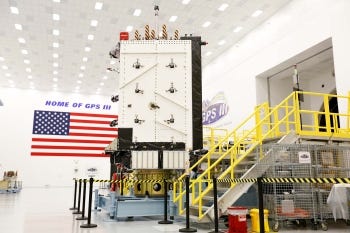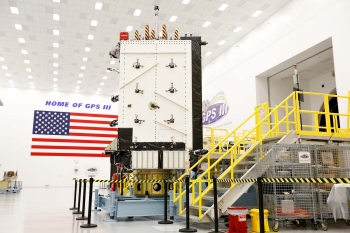COLORADO SPRINGS, Colo.—While panelists at the Space Foundation’s Space Symposium last week acknowledged that China’s Beidou satellite navigation constellation has more satellites, including low-Earth orbit (LEO) augmentation systems, the collective feeling was…so what?
In a future of positioning, navigation and timing panel (PNT), moderator Todd Simon, of Geospatial Alpha, asked panelists to comment on whether Beidou, with twice as many navigation satellites, three LEO PNT systems and 10 times as many monitoring ground stations, is a threat to the United States and its allies.

“It’s not about the numbers. You can pull the Chinese order of battle [to view] the number of ships, the number of soldiers, intelligence satellites and drones—they often have a greater number,” said Cordell DeLaPena, program executive officer for military communications and PNT, Space Systems Command. “Our focus is not about numbers, it’s about an approach that thickens our resistance between our coalition partners. China is on the other side of the world. We have to focus on maintaining a gold standard [GPS] in five critical areas. Anyone can put up numbers.”
Speaking for Galileo, Rodrigo da Costa, executive director European Union Agency for the Space Program, concentrated on the economic value of the system, while saying the European system worked well with GPS and other GNSS. “When we look at Galileo and GPS, the degree of interoperability is an added value to the users. It’s the value that is created—the element of economic use and value to our users,” he said.


























